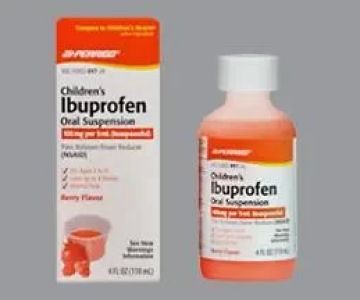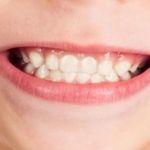Understanding Oral Herpes in Children
Oral herpes, caused by the herpes simplex virus type 1 (HSV-1), is a common viral infection that leads to cold sores or fever blisters around the mouth. Many parents wonder, can children get oral herpes? The answer is yes—children of all ages can contract oral herpes, often during their early years. This virus is highly contagious and can spread through close contact such as kissing, sharing utensils, or touching contaminated surfaces.
The infection is particularly common among toddlers and young children because their immune systems are still developing, and they are naturally curious and prone to putting objects in their mouths. Understanding how oral herpes manifests in children, recognizing symptoms, and knowing how to respond are essential for parents and caregivers.
How Children Contract Oral Herpes
Oral herpes spreads primarily through direct contact with the virus. The most common ways children contract oral herpes include:
1. Close Contact with Infected Individuals
Simple acts like kissing a family member or friend who has an active cold sore can transmit the virus to a child. Even when sores are not visible, the virus can be shed and passed on.
2. Sharing Personal Items
Children often share cups, utensils, toys, or towels, which can harbor HSV-1 if used by an infected person. This indirect contact can spread the virus.
3. Touching the Mouth or Face
Children frequently touch their faces and mouths, which can transfer the virus from contaminated hands to oral mucosa. Poor hand hygiene increases the risk.
Recognizing Oral Herpes Symptoms in Children
Symptoms of oral herpes can vary, especially in young children. Sometimes the infection causes no symptoms at all, but when it does, it typically appears within 2 to 12 days after exposure.
1. Early Signs and Symptoms
- Tingling, itching, or burning sensation around the lips or inside the mouth
- Fever, irritability, and swollen lymph nodes
- Headache or general malaise
- Small, painful blisters or sores on the lips, gums, tongue, or roof of the mouth
2. Severe Cases and Complications
In some children, especially those with weakened immune systems, oral herpes can cause more widespread symptoms like difficulty eating or drinking due to painful sores. Rarely, the virus can lead to complications such as dehydration or secondary bacterial infections requiring medical attention.
Diagnosing Oral Herpes in Children
Because symptoms of oral herpes can resemble other common childhood illnesses, accurate diagnosis is important. Pediatricians or dentists may use the following methods:
1. Clinical Examination
A healthcare provider will examine the mouth and skin for characteristic sores and ask about symptoms and exposure history.
2. Laboratory Tests
Swab samples from sores can be tested using polymerase chain reaction (PCR) or viral culture to confirm HSV-1. Blood tests may also be used in some cases.
Treatment and Care for Children with Oral Herpes
There is no cure for oral herpes, but treatment focuses on managing symptoms and preventing complications.
1. Symptom Relief
Pain and discomfort can be eased with over-the-counter pain relievers like acetaminophen or ibuprofen (dosed appropriately for children). Applying cool, damp cloths can soothe irritated skin.
2. Antiviral Medications
In more severe cases, doctors may prescribe antiviral medications such as acyclovir to reduce the duration and severity of outbreaks. Early treatment is most effective.
3. Preventing Spread
Parents should encourage good hygiene habits, including frequent handwashing and avoiding sharing personal items. Keeping children away from others when sores are active helps reduce transmission.
Stories from Parents: Managing Oral Herpes in Children
Lisa, a mother of two from Texas, shares how her toddler developed painful cold sores after attending daycare. Initially unsure what was wrong, Lisa quickly sought advice and learned that oral herpes was common among young children. With proper care and hygiene adjustments, her child’s sores healed within two weeks, and she became vigilant about prevention to protect her family.
Stories like Lisa’s highlight how awareness and early intervention can make a big difference in managing oral herpes safely at home.
Preventive Tips to Protect Your Child from Oral Herpes
While it may not always be possible to prevent oral herpes entirely, certain measures can reduce your child's risk:
1. Avoid Contact with Active Cold Sores
Teach family and friends not to kiss or share utensils with children when they have visible sores.
2. Promote Hand Hygiene
Encourage regular handwashing, especially before eating and after playing outside.
3. Educate Older Children
Older kids can understand the importance of not sharing personal items and maintaining good hygiene to prevent spreading viruses.
Finding Support and Resources
If you suspect your child has oral herpes or want professional guidance, consulting with pediatricians or dental experts is essential. Dentistry Toothtruth offers trusted resources and service recommendations tailored to children’s oral health needs. Their support can help families navigate diagnosis, treatment, and prevention with confidence and care.






 Periodontal & Implant Associates - Montville5.0 (9 review)
Periodontal & Implant Associates - Montville5.0 (9 review) Papania Family Dentistry4.0 (166 review)
Papania Family Dentistry4.0 (166 review) Burg Childrens Dentistry & Orthodontics - Oquirrh Park4.0 (1027 review)
Burg Childrens Dentistry & Orthodontics - Oquirrh Park4.0 (1027 review) George D. Lim, DMD Inc.4.0 (136 review)
George D. Lim, DMD Inc.4.0 (136 review) Niver & Sobel5.0 (4 review)
Niver & Sobel5.0 (4 review) Bright Now! Dental & Orthodontics4.0 (265 review)
Bright Now! Dental & Orthodontics4.0 (265 review) The Importance of Oral Health Education During Pregnancy for a Healthy Pregnancy
The Importance of Oral Health Education During Pregnancy for a Healthy Pregnancy Best Tips for Brushing Your Teeth Properly for Healthy Gums: Essential Techniques for Oral Health
Best Tips for Brushing Your Teeth Properly for Healthy Gums: Essential Techniques for Oral Health Why Skipping Dental Checkups Can Lead to Bigger Oral Health Problems
Why Skipping Dental Checkups Can Lead to Bigger Oral Health Problems Advantages of Porcelain Dental Restorations
Advantages of Porcelain Dental Restorations How Can Diabetes Cause Tooth and Gum Problems? Preventing and Managing Oral Health Issues
How Can Diabetes Cause Tooth and Gum Problems? Preventing and Managing Oral Health Issues Healthy Habits for Promoting Good Oral Health and Hygiene: Tips for a Healthy Smile
Healthy Habits for Promoting Good Oral Health and Hygiene: Tips for a Healthy Smile